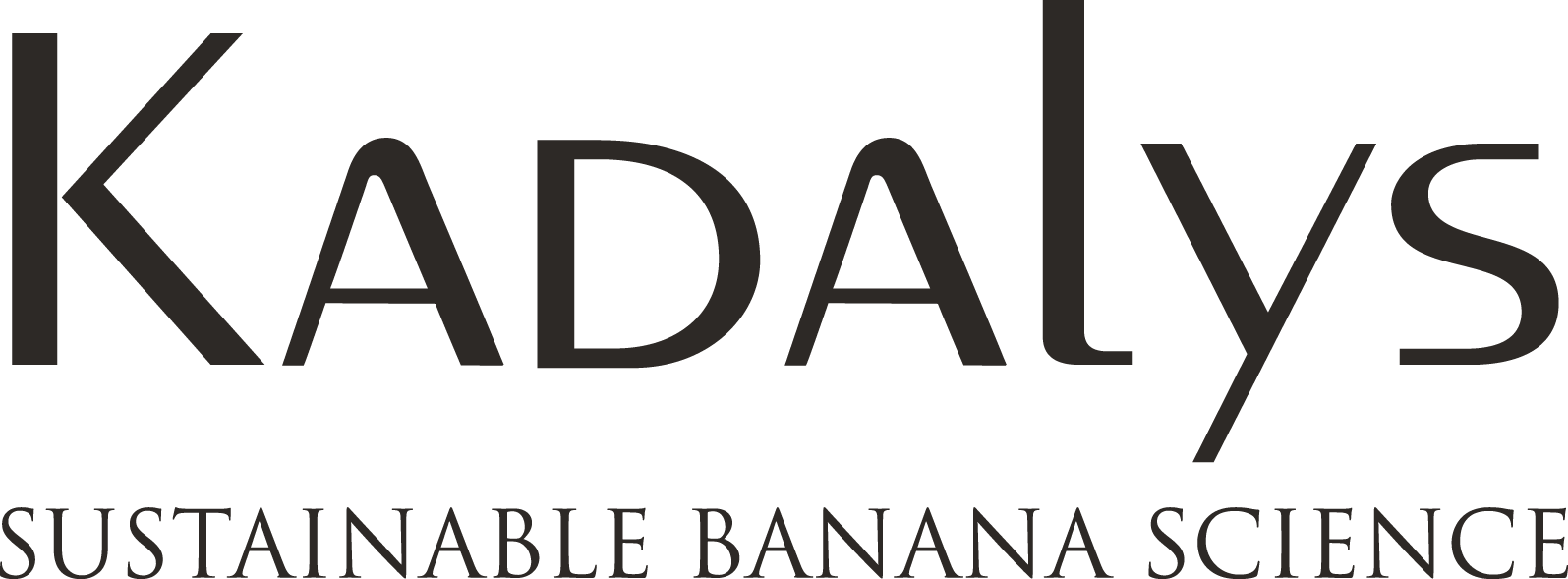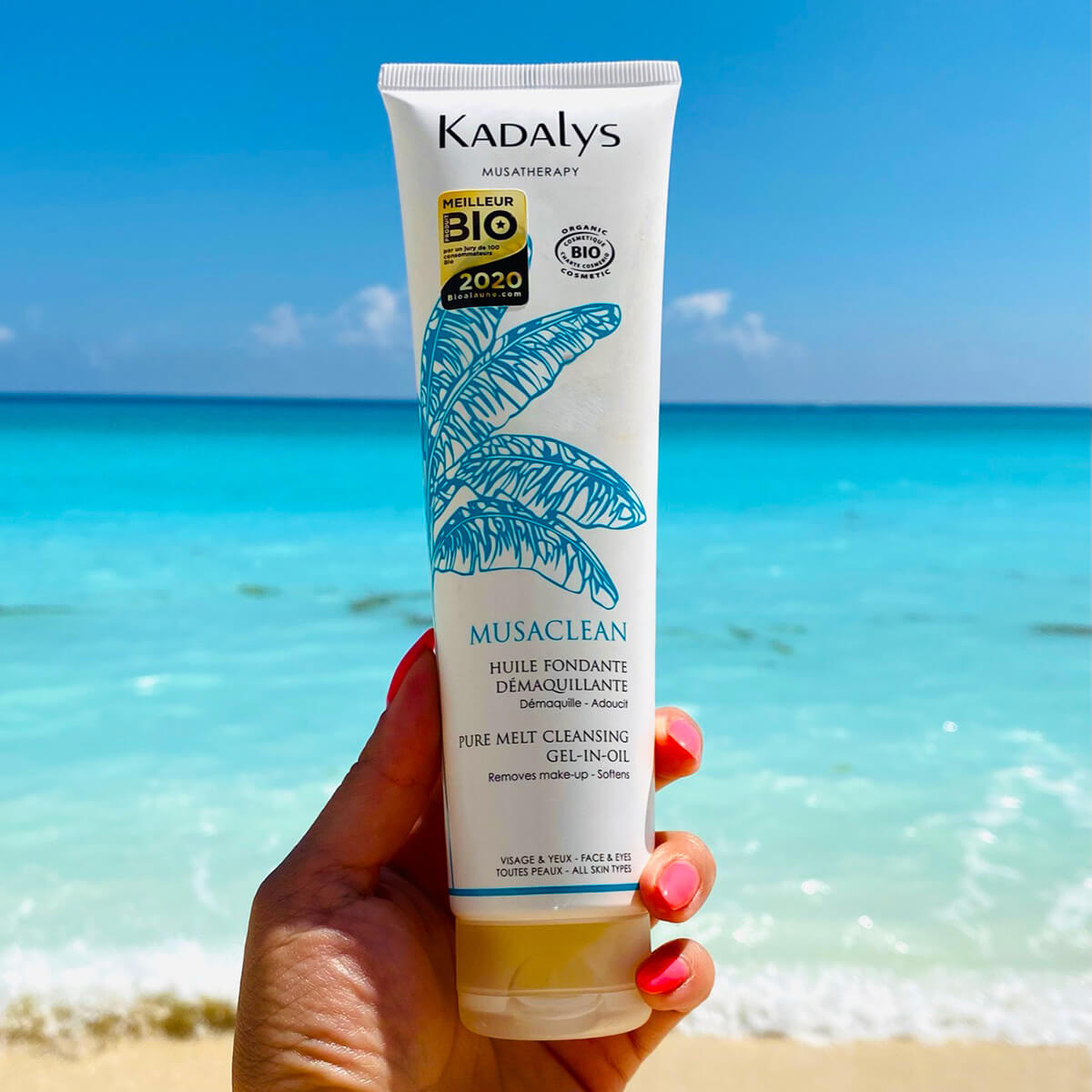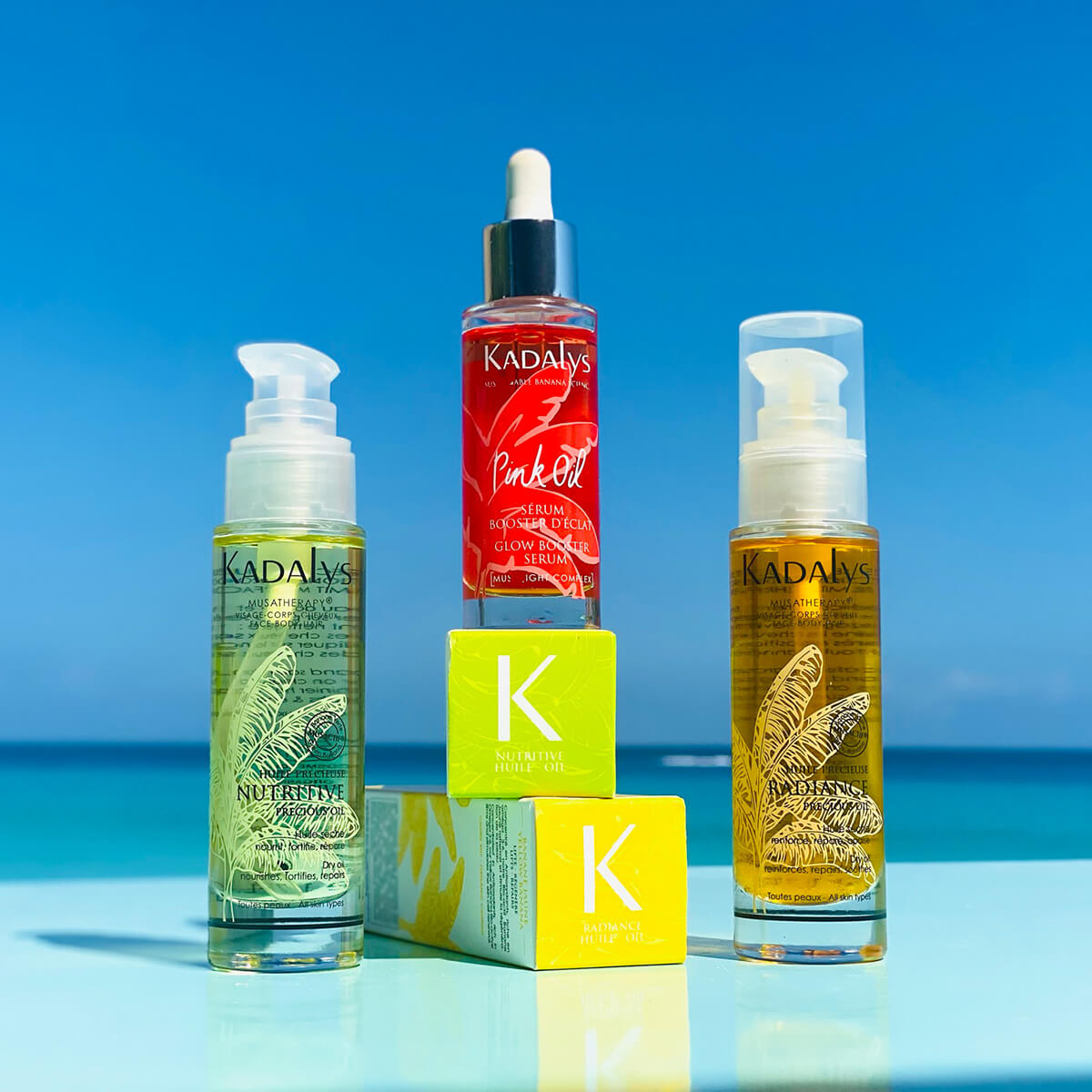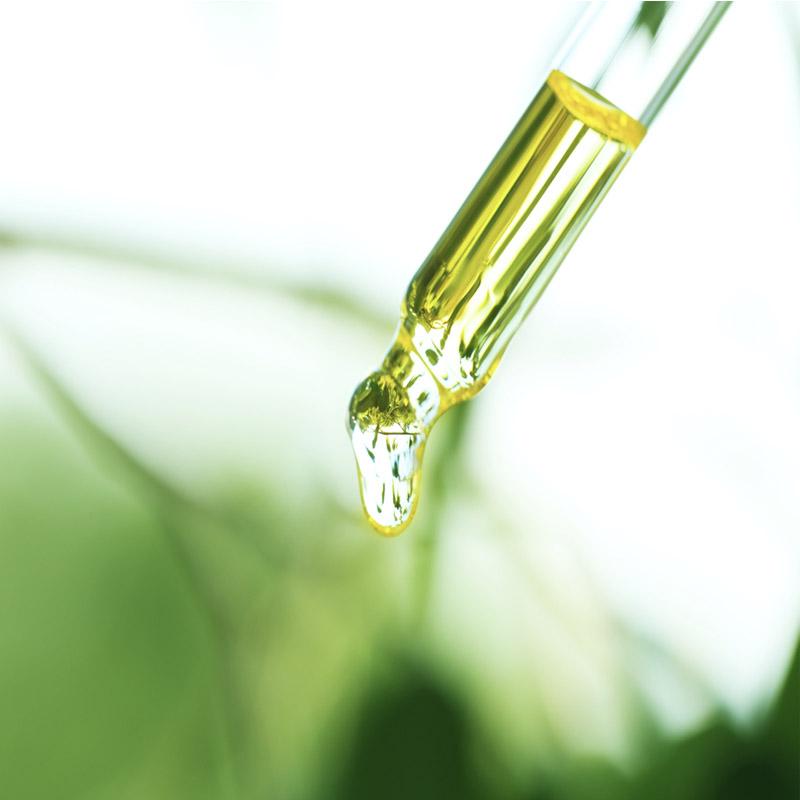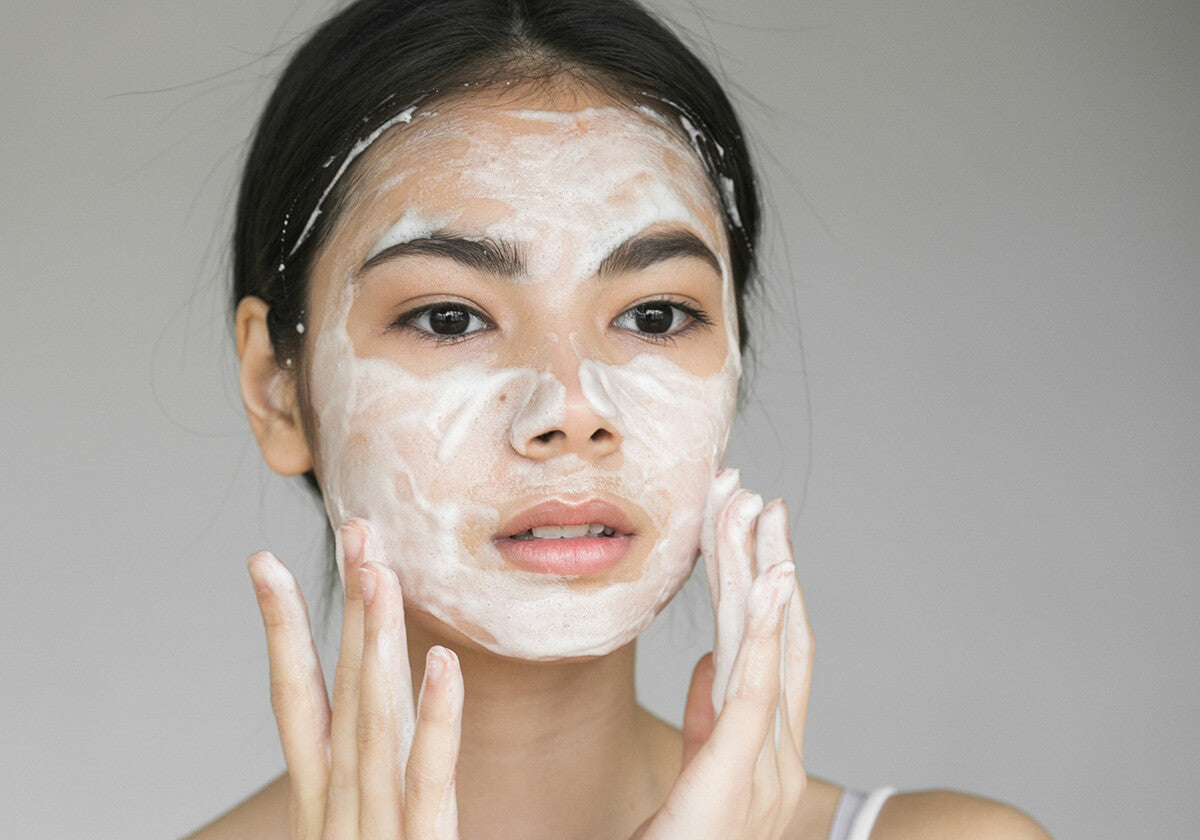
10 Most Common Face Washing Mistakes
It's essential to take care of your skin, and that includes washing your face every day. However, many people make common mistakes when they wash their faces, which can lead to skin problems.
In this article, we will discuss the top 10 face washing mistakes most commonly made. We'll also provide tips on how to avoid these mistakes and get the most out of your skincare routine!
1. Not washing your face before you go to bed
One of the most common face washing mistakes is going to bed without removing makeup. Going to bed without a nightime wash can cause a number of problems for your skin.
First, it can lead to clogged pores, as makeup and other debris build up on the surface of the skin. This can cause blackheads, whiteheads, and acne breakouts.
In addition, sleeping in makeup can increase the appearance of wrinkles and fine lines. Dirt and impurities on your skin will prevent it from adequately renewing itself overnight.
Finally, because the makeup will absorb moisture from your skin, leaving it on overnight can dry out the skin
For all these reasons, take the time to use a makeup remover and wash your face thoroughly every night before going to bed.
2. Scrubbing your delicate skin too hard
When it comes to washing your face, it is important not to scrub too hard. Though it may feel satisfying to exfoliate away all of the dirt and grime that has built up over the course of the day, washing your face with too much pressure can actually damage your skin's moisture barrier.
The moisture barrier is a thin layer of lipids that helps to protect against environmental aggressors like harmful UV rays and pollution.
When this barrier is damaged, it can lead to irritation, dryness, and redness. In some cases, it can even lead to breakouts.
Instead of scrubbing, gently massage your face wash onto your skin using a circular motion. Rinse with warm water and pat your face dry.
3. Using hot water
When it comes to washing your face, using hot water may seem like it would get the job done better. However, hot or steamy water can actually lead to moisture loss.
When you use hot water on your face, it strips away the oils that help to keep your skin hydrated.
As a result, you may end up with dry, irritated skin. In addition, the heat from the water can cause the blood vessels in your face to dilate, leading to redness and inflammation.
For these reasons, it is best to stick to lukewarm or cool water when washing your face. You'll still be able to get rid of dirt and debris without causing damage to your skin.
If you want to maintain glowing, happy skin, it's best to stick with lukewarm water when washing your face.
To help close pores and give your skin a boost of refreshment, splash your face with cold water afterward Be sure the water is not freezing as extreme temperatures of any kind are not great for your skin.
4. Using cleansers with harsh ingredients
The skin on your face is delicate, so treat it with care. Harsh ingredients can strip away natural oils, leaving your skin dry and irritated. In addition, they can cause micro-cuts and abrasions, which provide a portal for bacteria to enter your body.
That's why you should choose a face wash that is gentle and will not damage your skin. Avoid cleansers that contain harsh chemicals such as sulfates like SLS.
SLS is a detergent that can cause micro-tears in your moisture barrier and strip the natural oils from your skin, leaving it feeling dry and irritated. In addition, SLS can cause breakouts, particularly for people who are prone to acne.
Natural and organic face washes are good options because they don't typically contain harsh or toxic chemicals. By taking these simple steps, you can help ensure that your facial cleansing routine is gentle and effective.
5. Not rinsing thoroughly
Many people believe that once they have washed their faces, the job is done. However, it is just as important to rinse thoroughly afterward.
Failure to do so can leave behind traces of soap, which can dry out the skin and cause skin irritation. Even worse, it can cause your pores to become clogged, leading to acne.
For best results, rinse your face with plenty of lukewarm water, using gentle circular motions until all traces of soap have been removed.
Finish by splashing your face with cool water to help tighten pores and give the skin a healthy glow. By taking the time to rinse thoroughly, you can help keep your skin looking and feeling its best.
6. Over-exfoliating
Exfoliating is an essential step in any skincare routine as it is effective for removing dead skin cells and unclog pores.
However, it is important not to over-exfoliate or exfoliate too frequently as this also can cause damage to your skin barrier. When the skin barrier is damaged, it is more susceptible to skin conditions like inflammation and dehydration. If you are using a physical exfoliant, be sure to use circular motions and avoid scrubbing too hard.
If you are using a chemical exfoliant, be sure to choose one that is appropriate for your skin type and follow the instructions carefully. If you have sensitive skin, look for a gentle chemical exfoliator and avoid harsh scrubs
It is vital to exfoliate only as often as your skin can tolerate. If you start to see redness or excessive dryness, it is time to back off on the exfoliation. Remember, less is more when it comes to exfoliation.
When exfoliating, limit yourself to no more than once or twice a week. And don't forget to use a hydrating moisturizer afterward to help restore your skin's barrier.
7. Using face or makeup wipes
Face wipes are a popular makeup remover and way to cleanse the face, especially when on the go. When it comes to washing your face, there are a number of different options available.
Many people opt for face wipes because they are convenient and easy to use. However, face wipes are not the best to effectively wash your face. Because they only remove surface dirt and oil, they can end up spreading dirt and bacteria around if they are not used correctly.
And since you are not rinsing your skin after using them, you are not eliminating dead skin cells that can cause a build up and clog pores.
In fact, cleansing wipes leave ingredients on your skin that would be better washed away. These include surfactants, solubilizers, emulsifiers, and preservatives which can cause irritation or an allergic reaction if left on the skin.
8. Using a dirty towel to dry skin
If you don't dry your face properly after washing it, you could be doing more harm than good. Using a dirty towel to dry your face can actually spread bacteria and cause new breakouts.
A damp towel is the perfect breeding ground for bacteria, so using s dirty towel could undo the benefits you gained from washing your face correctly. This is especially true if you have a compromised skin barrier.
To prevent towel-causing acne, wash yoru towels frequently. And reach for a clean towel to dry skin if you have any doubts about how clean it is.
9. Striving for a squeaky clean & robbing your skin of its natural oils
For years, the conventional wisdom has been that a squeaky clean face was the goal of face washing. However, this is a sign of over-cleansing and that your face has been stripped of its natural oils.
Over cleansing can lead to dryness, irritation, and even acne. When washing your face, be sure to use a gel or oil based cleanser that won't strip your skin.
Gentle cleansers are just as effective at removing dirt and oil, without the risk of stripping away the protective barrier of the skin. Remember, the goal is to cleanse, not to deprive your skin of the moisture it needs to be soft and supple.
Over-cleansing will only leave your skin feeling tight, dry, and vulnerable to irritation. So next time you wash your face, ditch the scrubbing and reach for a gentle cleanser instead. Your skin will thank you for it.
10. Not cleansing your neck
It's easy to forget about your neck when you're focused on washing your face, but it's essential to extend your cleansing routine down to your neck as well.
The skin on your neck is just as susceptible to dirt, pollution, and other impurities as the skin on your face, so it needs to be cleaned every day.
In addition, the neck is often one of the first places to show signs of aging, so a regular skincare routine can help to keep the neck looking young and healthy.
An excellent way to make sure you include your neck in your cleansing routine is to use a product that can be applied directly to the skin, such as a gel or oil based cleanser.
This will help you avoid missed spots and ensure that your neck gets the same level of cleanliness as your face. With a bit of extra care, you can keep your neck looking just as healthy and radiant as your face.
Time for a clean start
Now that you know the most common face washing mistakes people make, be sure to avoid them.
Want to learn the proper way to wash your face for a deep and healthy clean? You can learn more in our blog post "Facial Cleansing 101," where we provide tips on how to get the perfect cleanse.
Remember, a good skincare routine starts with proper cleansing – so don't cut corners when it comes to your face.
READ "FACIAL CLEANSING 101"
